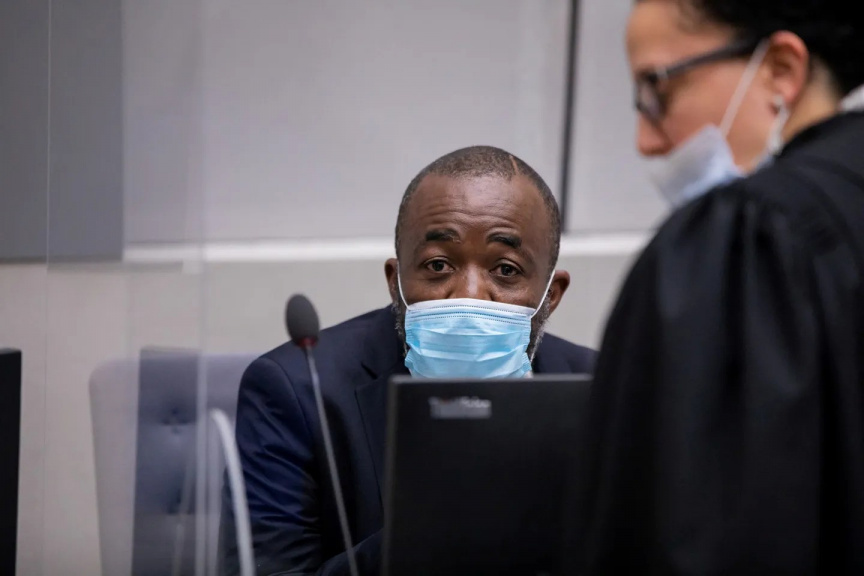
Alleged leaders of Central African Republic militias and Yekatom Patrice-Edouard Ngaissona appears before the ICC in The Hague. (Photo/Reuters)
The International Criminal Court has sentenced two Central African Republic rebel leaders to lengthy prison terms after convicting them of multiple war crimes and crimes against humanity for atrocities committed during sectarian violence a decade ago.
Judges sentenced Patrice-Edouard Ngaissona to 12 years and Alfred Yekatom to 15 years in prison.
Both were found guilty of their roles as senior commanders in the Anti-Balaka militia during a campaign of violence from September 2013 to February 2014 that targeted Muslim civilians in the capital Bangui and surrounding areas.
The convictions covered multiple charges, including murder, attacks on civilian populations, torture, persecution, and forcible transfer.
The Anti-Balaka militia clashed with the mostly Muslim Seleka rebel group after the Seleka ousted President Francois Bozize in 2013, triggering widespread violence across the country.
Judges said Ngaissona, who served as the national general coordinator, was involved in planning operations aimed at restoring Bozize to power and retaliating against Seleka forces.
Yekatom, a former zone commander, was found to have maintained full control over his armed unit and to have coordinated attacks with others.
However, the court noted that it did not consider the conflict to be religious in nature at the outset, citing testimony from witnesses — both Muslim and non-Muslim — who said communities had lived together peacefully prior to the war.
The trial began in 2021. Both men pleaded not guilty.
In a statement, the ICC prosecutor’s office welcomed the ruling.
"This conviction is a strong message from the ICC that those responsible for atrocity crimes under the Rome Statute will be brought to justice and held to account," said ICC Deputy Prosecutor Mame Mandiaye Niang.
"From the battlefield to the inner circles of power, there can be no impunity for crimes violating the most fundamental tenet of international humanitarian law — the protection of civilians."
The prosecution called 115 witnesses during the trial, 75 of whom appeared in person before the chamber.
___
Source: TRT